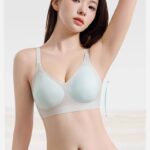Understanding Hanfu: Definitions and Origins
The term ‘Hanfu’ refers to the traditional clothing of the Han Chinese, a style with roots stretching back over three millennia. This attire carries significant cultural importance in ancient China, symbolizing both the societal status of the wearer and the rich heritage of Chinese civilization. As we trace its evolution, we see distinct variations emerge through the dynasties, each adding unique elements to the Hanfu’s design and aesthetic.
The Anatomy of Traditional Hanfu
Traditional Hanfu is characterized by its flowing robes, wide sleeves, and crossed collars. The attire is composed of several layers, each serving a specific purpose and made from materials ranging from silk to brocade. Colors and patterns are not merely decorative; they carry deep symbolism, with specific hues representing different virtues or social statuses.
The Evolution of Hanfu Through the Ages
From the Shang to the Tang dynasties, Hanfu evolved to reflect the changing times, with each era bringing its own styles and influences. The Ming Dynasty, in particular, witnessed a renaissance of Hanfu fashion, which celebrated lavish designs and intricate details. However, the attire’s prominence declined with the Qing Dynasty’s rise, leading to a period of obscurity until a recent modern revival.
Hanfu in Ceremonies and Festivals
Traditionally, Hanfu played a central role in Chinese rituals, symbolizing respect and adherence to cultural norms. Today, it has found new life in modern weddings and tea ceremonies, where it adds a touch of elegance and tradition. Public celebrations and festivals also see Hanfu enthusiasts proudly showcasing their attire, bringing historical fashion into contemporary light.
The Influence of Hanfu on Modern Fashion
As Hanfu re-enters the mainstream, its elements are being woven into contemporary clothing, influencing both local and global fashion landscapes. Social media has played a crucial role in this resurgence, with communities forming online to share styles, tips, and promote the Hanfu movement.
Preserving Tradition: The Role of Hanfu in Cultural Identity
The revival of Hanfu is not just a fashion trend; it’s a movement towards cultural preservation. Enthusiasts and organizations are dedicated to educating others about its significance, ensuring that this ancient tradition is handed down through generations. The global Hanfu community plays a pivotal role in this, bridging cultures and fostering a deeper understanding of Chinese heritage.
Crafting and Wearing Your Own Hanfu
Creating and donning Hanfu today allows for personal expression within the framework of traditional design. While adhering to the basic structure, individuals can experiment with fabrics, colors, and accessories to create a look that’s both authentic and personal. However, understanding the etiquette and context of wearing Hanfu is crucial to honoring its cultural roots.
The Future of Hanfu in Global Culture
As Hanfu continues its journey from tradition to innovation, it faces both challenges and opportunities. Balancing respect for its rich history with the adaptability required for modern relevance is key. The ongoing evolution of Hanfu promises to enrich global culture, inviting us all to partake in its elegant and enduring legacy.






